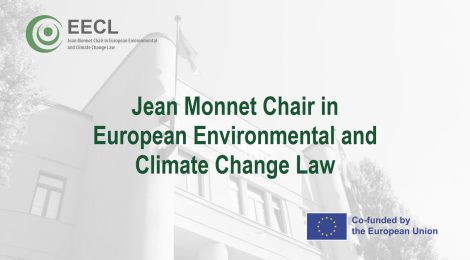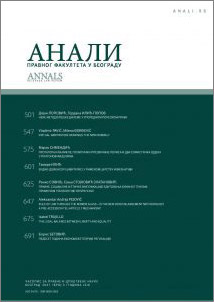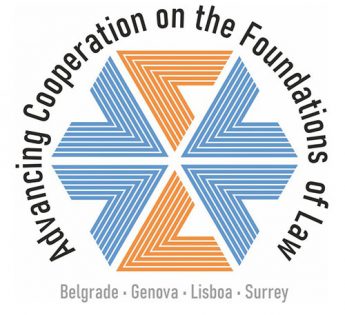
Jean Monnet Chair in European Environmental and Climate Change Law
The European Commission Executive Agency for Education, Audiovisual and Culture (EACEA) selected for EU co-funding the application of the University of Belgrade Law Faculty for a Jean Monnet Chair in European Environmental and Climate Change Law (E-E-C-L). Jean Monnet Chair holder is Prof. Dr. Mirjana Drenovak-Ivanović. The project team includes Prof. Dr. Milan Škulić, Prof. Dr. Dobrosav Milovanović, Prof. Dr. Ivana Krstić, Prof. Dr. Bojana Čučković, Prof. Dr. Branka Babović and PhD candidate and teaching assistant at the University of Belgrade Faculty of Law Marija Vlajković, LL.M. The duration of the project is three academic years, starting from year 2023/2024.
The third of all regulations Serbia should transpose and implement in accordance with EU standards is related to environmental protection. The project is designed to ensure education and continuous training in EU environmental and climate change law and the practice of the CJEU and ECHR. The project will provide further training not only of bachelor, master and PhD students, but also the judges, lawyers, public servants (central, local and regional level), high level of decision makers, civil society and business community. The project provides teaching/lectures to students of other departments. The project will put new subjects of environmental and climate law in focus (climate law and changes in EU and national law, Sustainable corporate behaviour and responsible corporate governance in EU, EU taxonomy for sustainable activities, New rules on corporate sustainability reporting: The Corporate Sustainability Reporting Directive, Directive on corporate sustainability due diligence, European Green Deal and Green Agenda for Western Balkans, Carbon Border Adjustment Mechanism and its relevance for Western Balkan countries, Gender equality in environmental policy, climate justice and climate change litigations, synergies and tensions between the green and digital transition, Smart contracts and environmental sustainability, Blockchain and environmental and climate crisis), but also new aspects of the subjects that have already been incorporated in the curriculum. Additional activities will also be performed: conference, Webinars, Readers, roundtable debates, workshop, media coverage. Syllabi, course summaries, developed materials will be freely accessible.




